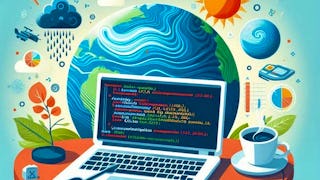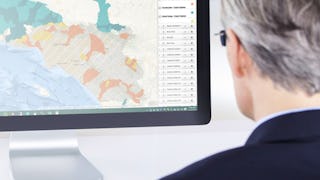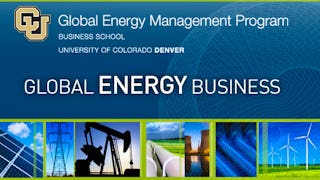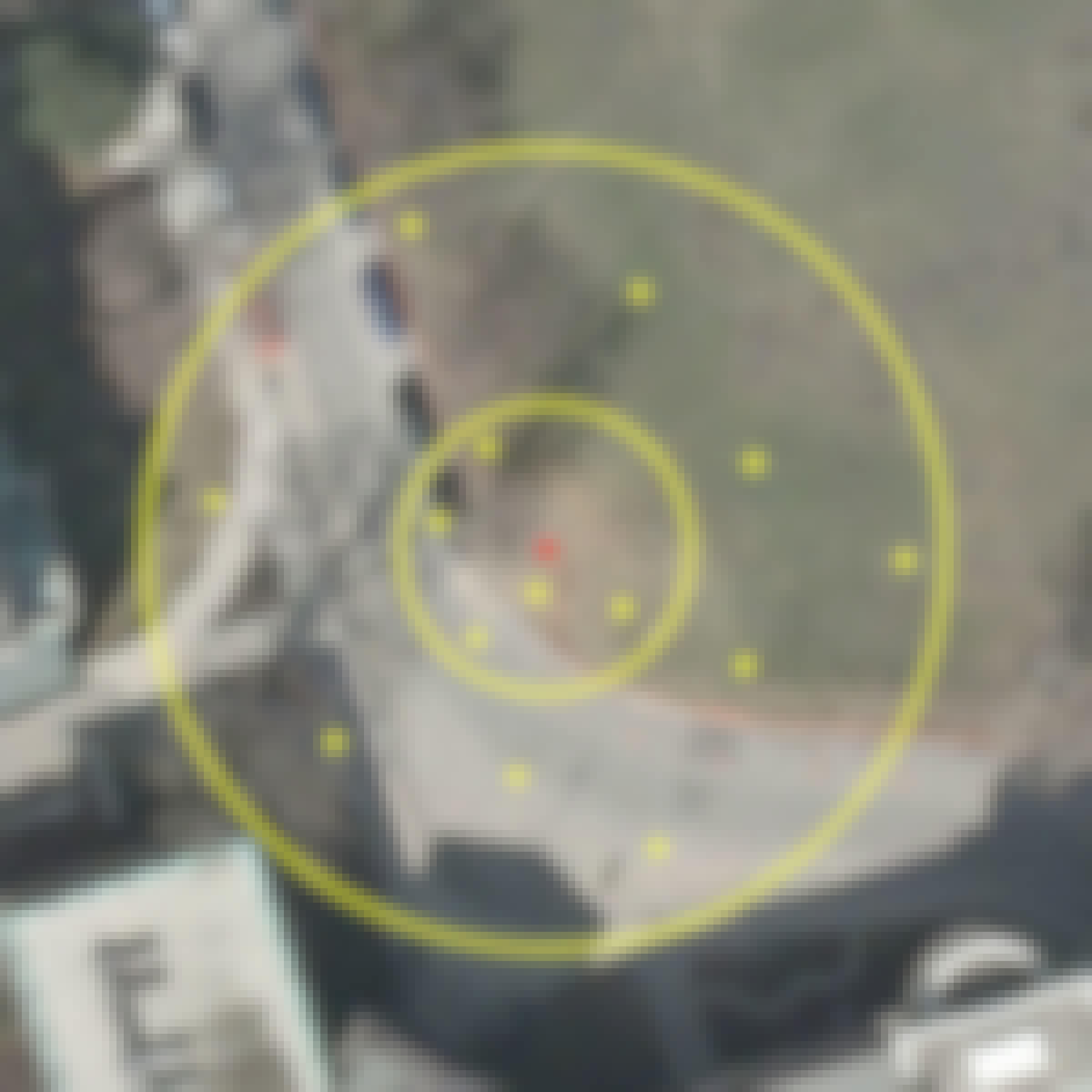Filter by
SubjectRequired
LanguageRequired
The language used throughout the course, in both instruction and assessments.
Learning ProductRequired
LevelRequired
DurationRequired
SkillsRequired
SubtitlesRequired
EducatorRequired
Explore the Geosciences Course Catalog

Nanyang Technological University, Singapore
Skills you'll gain: Systems Thinking, Network Analysis, Mathematical Modeling, Simulations, Social Sciences, Applied Mathematics, Policy Analysis, Forecasting, Trend Analysis, Jupyter

University of Colorado Boulder
Skills you'll gain: Environment, Persuasive Communication, Environmental Issue, Scientific Methods, Civil Engineering, Political Sciences, Community Development, Environmental Science, Water Resources, Natural Resource Management, Energy and Utilities

University of Colorado Boulder
Skills you'll gain: Statistical Analysis, Matplotlib, Regression Analysis, Statistical Modeling, Dimensionality Reduction, Unsupervised Learning, Machine Learning Algorithms, Applied Machine Learning, Machine Learning, Data Science, Environmental Policy, Data Analysis, Pandas (Python Package), Scikit Learn (Machine Learning Library), Supervised Learning, Environment, Environmental Issue, International Relations, Policy Analysis, Energy and Utilities

University of California, Davis
Skills you'll gain: Spatial Data Analysis, Spatial Analysis, ArcGIS, Geographic Information Systems, Geospatial Mapping, Data Quality, Data Mapping, Data Modeling, Data Storage, Data Sharing, Data Manipulation, Relational Databases, Query Languages
 Status: Free
Status: FreeUniversity of Colorado System
Skills you'll gain: Energy and Utilities, Strategic Thinking, Global Marketing, Market Analysis, Business Economics, Supply And Demand, Stakeholder Engagement, Political Sciences, Policy Analysis, Environment and Resource Management, Natural Resource Management, Emerging Technologies
 Status: Free
Status: FreeGeorgia Institute of Technology
Skills you'll gain: Chemistry, Chemical Engineering, Manufacturing Processes, Mechanical Engineering, Engineering, Process Engineering, Physical Science, Semiconductors
 Status: Free
Status: FreeThe University of Chicago
Skills you'll gain: Mitigation, Environment, Physics, Mathematical Modeling, Environmental Monitoring, Systems Thinking, Environmental Science, Simulations, Biology, Economics, Energy and Utilities, Chemistry, Data Collection

University of Toronto
Skills you'll gain: Geographic Information Systems, Geospatial Mapping, Data Mapping, Spatial Data Analysis, Data Visualization, Metadata Management, Quantitative Research, Typography, Data Manipulation, Data Modeling, Design Elements And Principles
 Status: New
Status: NewUniversity of Illinois Urbana-Champaign
Skills you'll gain: Environmental Monitoring, Community Outreach, Environmental Engineering and Restoration, Water Resources, Cultural Diversity, Land Management, Policy Analysis, Social Sciences, Cultural Sensitivity, Environmental Laws, Environmental Engineering, Natural Resource Management, Environmental Issue, Environmental Policy, Environment, Environmental Regulations, Environmental Science, Biology, Research Reports, Environment and Resource Management
 Status: Free
Status: FreeÉcole Polytechnique Fédérale de Lausanne
Skills you'll gain: Spatial Data Analysis, Geospatial Mapping, Geospatial Information and Technology, Geographic Information Systems, Spatial Analysis, GIS Software, Global Positioning Systems, Land Development, 3D Modeling, Survey Creation, Systems Of Measurement
 Status: Free
Status: FreeUniversity of California San Diego
Skills you'll gain: Energy and Utilities, Electrical Power, Pollution Prevention, Environmental Policy, Mitigation, Environment, Social Studies, Food and Beverage, Environmental Regulations, Environmental Science, Economics, Chemical Engineering, Production Process, Biology

Arizona State University
Skills you'll gain: Chemical Engineering, Chemistry, Engineering, Mechanical Engineering, Physical Science, Physics, Semiconductors
In summary, here are 10 of our most popular geosciences courses
- Introduction to Complexity Science: Nanyang Technological University, Singapore
- What is Climate Change?: University of Colorado Boulder
- Modeling and Predicting Climate Anomalies: University of Colorado Boulder
- GIS Data Formats, Design and Quality: University of California, Davis
- Fundamentals of Global Energy Business: University of Colorado System
- Material Processing: Georgia Institute of Technology
- Global Warming I: The Science and Modeling of Climate Change: The University of Chicago
- GIS Data Acquisition and Map Design: University of Toronto
- Wetland Science and Conservation: University of Illinois Urbana-Champaign
- Éléments de Géomatique: École Polytechnique Fédérale de Lausanne










